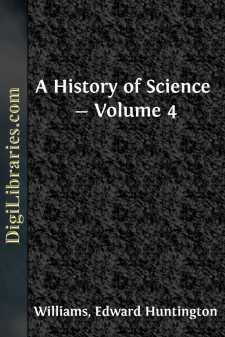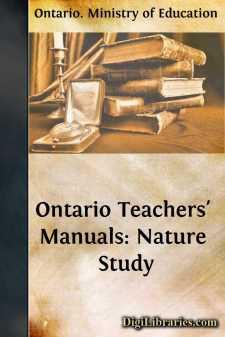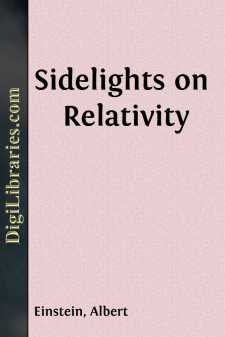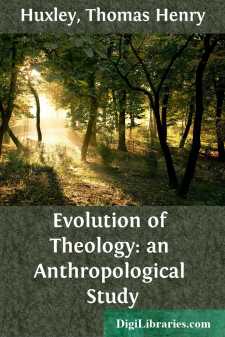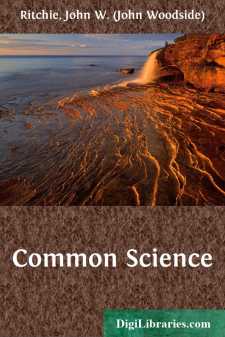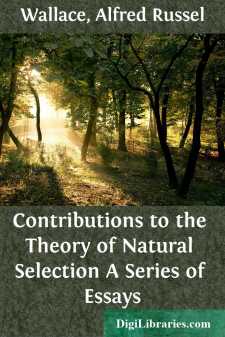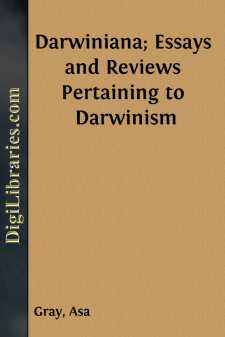Science
- Astronomy 18
- Biology 40
- Chemistry 13
- Electricity 1
- General 38
- History 6
- Light 1
- Paleontology 2
- Philosophy & Social Aspects 1
- Physics 3
- Relativity 2
- Study & Teaching 1
- Waves & Wave Mechanics 1
Science Books
Sort by:
THE FORMATIVE PERIOD The best age at which to marry—Incompatibility of temperament—A happy marriage need not be a successful one—The evils of early marriage—The wedding night, its medical aspect—The honeymoon—When marital relations are painful—Times when marital relations should be suspended—The first weeks and months of wifehood—The formative period—A true marriage—A wife's...
more...
I. THE PHLOGISTON THEORY IN CHEMISTRY The development of the science of chemistry from the "science" of alchemy is a striking example of the complete revolution in the attitude of observers in the field of science. As has been pointed out in a preceding chapter, the alchemist, having a preconceived idea of how things should be, made all his experiments to prove his preconceived theory; while...
more...
In the two preceding lectures I have endeavoured to indicate to you the extent of the subject-matter of the inquiry upon which we are engaged; and now, having thus acquired some conception of the Past and Present phenomena of Organic Nature, I must now turn to that which constitutes the great problem which we have set before ourselves;—I mean, the question of what knowledge we have of the causes of...
more...
CHAPTER I THE AIMS OF NATURE STUDY Nature Study means primarily the study of natural things and preferably of living things. Like all other subjects, it must justify its position on the school curriculum by proving its power to equip the pupil for the responsibilities of citizenship. That citizen is best prepared for life who lives in most sympathetic and intelligent relation to his environment, and it...
more...
by:
Albert Einstein
How does it come about that alongside of the idea of ponderable matter, which is derived by abstraction from everyday life, the physicists set the idea of the existence of another kind of matter, the ether? The explanation is probably to be sought in those phenomena which have given rise to the theory of action at a distance, and in the properties of light which have led to the undulatory theory. Let...
more...
I conceive that the origin, the growth, the decline, and the fall of those speculations respecting the existence, the powers, and the dispositions of beings analogous to men, but more or less devoid of corporeal qualities, which may be broadly included under the head of theology, are phenomena the study of which legitimately falls within the province of the anthropologist. And it is purely as a...
more...
PREFACE A collection of about 2000 questions asked by children forms the foundation on which this book is built. Rather than decide what it is that children ought to know, or what knowledge could best be fitted into some educational theory, an attempt was made to find out what children want to know. The obvious way to discover this was to let them ask questions. The questions collected were asked by...
more...
PREFACE. The present volume consists of essays which I have contributed to various periodicals, or read before scientific societies during the last fifteen years, with others now printed for the first time. The two first of the series are printed without alteration, because, having gained me the reputation of being an independent originator of the theory of “natural selection,” they may be...
more...
by:
Asa Gray
These papers are now collected at the request of friends and correspondents, who think that they may be useful; and two new essays are added. Most of the articles were written as occasion called for them within the past sixteen years, and contributed to various periodicals, with little thought of their forming a series, and none of ever bringing them together into a volume, although one of them (the...
more...
IN the lecture which I delivered last Monday evening, I endeavoured to sketch in a very brief manner, but as well as the time at my disposal would permit, the present condition of organic nature, meaning by that large title simply an indication of the great, broad, and general principles which are to be discovered by those who look attentively at the phenomena of organic nature as at present displayed....
more...



